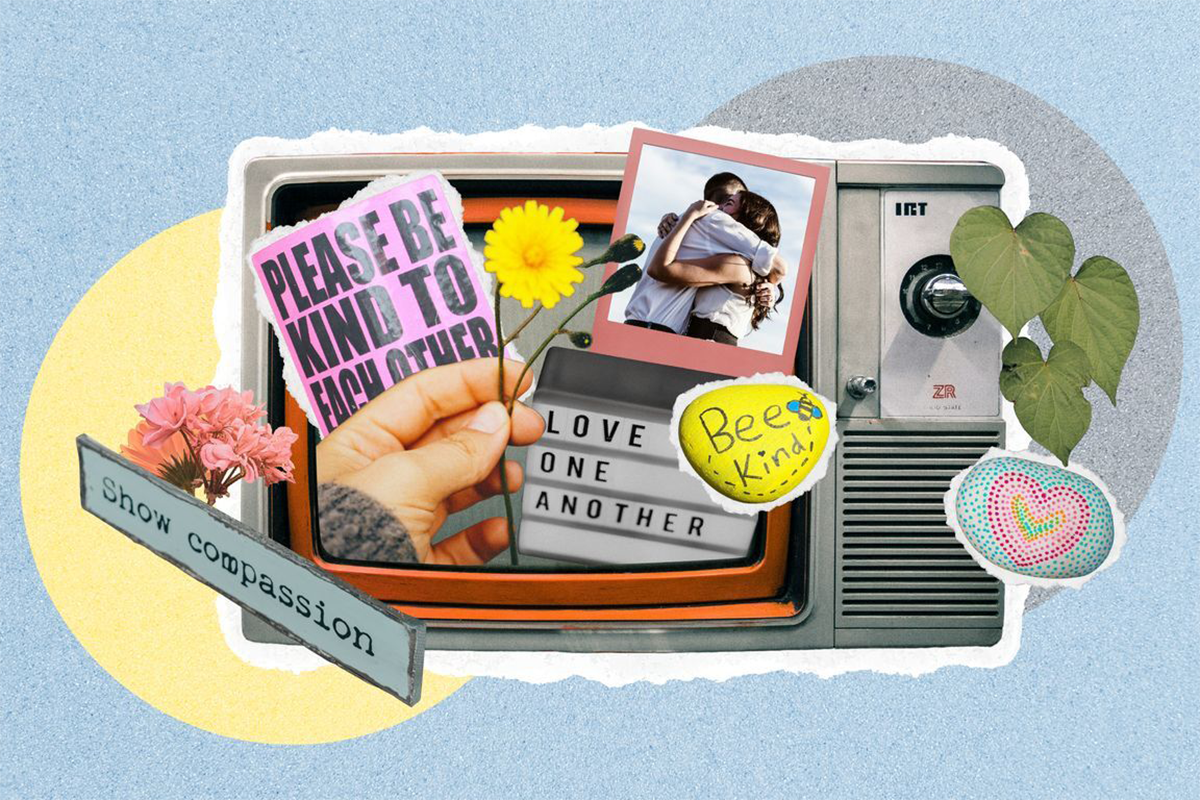Contagious kindness and beyond: Bedari Kindness Institute

By Lucy Berbeo and Citlalli Chávez-Nava | Art by Katie Sipek | September 29, 2025
The need behind the Bedari Kindness Institute, Myers says, has only become clearer since its founding. The world’s first interdisciplinary research platform of its kind, BKI was established in 2019 through a major gift to UCLA’s Division of Social Sciences by The Bedari Foundation, led by philanthropists Jennifer and Matthew Harris, a UCLA alumnus.
Prior to Myers’ appointment in 2024, the institute was led by UCLA professor and evolutionary anthropologist Daniel Fessler, who supported some dozen faculty projects involving work by scholars in a range of disciplines, from political science and psychology to pediatrics and education. One ongoing project has created a training platform for health care professionals that promotes more humanistic, compassionate interactions between providers and patients. While it is still under development, Fessler estimates the platform has positively influenced thousands of practicing and future physicians in the six years since its creation. Under his leadership, BKI also supported 25 wide-ranging graduate fellowships — investments, Fessler says, aimed at encouraging young scholars in pursuing kindness-related research.
During the 2025–26 academic year, the institute will support a new cohort of researchers, encompassing 14 teams and representing nine disciplines across UCLA, who will meet in monthly seminars to continue to build upon this interdisciplinary research community.
“There is no unique discipline that is the study of kindness,” says Fessler, who remains involved as a member of the faculty advisory committee. “BKI has very much been an exercise in helping to identify where productive avenues for research and kindness exist and how we can support them.”
Among these have been an influential 2019 study Fessler and his colleagues conducted on contagious kindness. Their research examined what psychologists call “elevation” — an uplifting, positive emotion people experience when observing others engaged in highly moral, altruistic acts — an experience that often results in “prosocial contagion,” making one more likely to act in a similar way. In the months after the study was released — a time of heightened political tensions as well as social isolation exacerbated by the pandemic — it was seen by many as a welcome path to fostering connection and positive change. The study has served as a foundation for additional efforts, including a collaboration with the Center for Scholars and Storytellers at UCLA to create a YouTube playlist that promotes kindness among children and an ongoing video project, led by students and overseen by Fessler, that uplifts real stories of kindness (see sidebar).
While it has enormous potential for building prosocial communities, Fessler says, contagious kindness is not a panacea, in part because it doesn’t address conflicts between coalitions, the social science term for groups of individuals allied around a common goal or interest. The real question of the moment, he says, is how to tackle that type of conflict.
“And the answer, which is coming not from my lab but from a lot of other research, is dyadic interactions — one-on-ones, when people sit down and talk to someone who holds an opposing viewpoint,” Fessler says. “If they can be patient and listen to the other party’s point of view and be given the opportunity to express their own, then we move away from a context in which members of the other coalition are dehumanized. And so things like the Dialogue across Difference enterprise that David Myers has spearheaded are really important, because it’s by modeling those kinds of interactions that we can bridge divides.”
Spreading kindness
The Contagious Kindness Project was founded on the premise that witnessing acts of kindness creates a ripple effect. Under Fessler’s oversight, UCLA students are collecting selfie-style videos from people about witnessing remarkable acts of kindness on campus and in the broader community. Thus far, students have collected an anthology of dozens of YouTube shorts. Want to get involved? Submit your video here.
To return to the full feature, click here.



